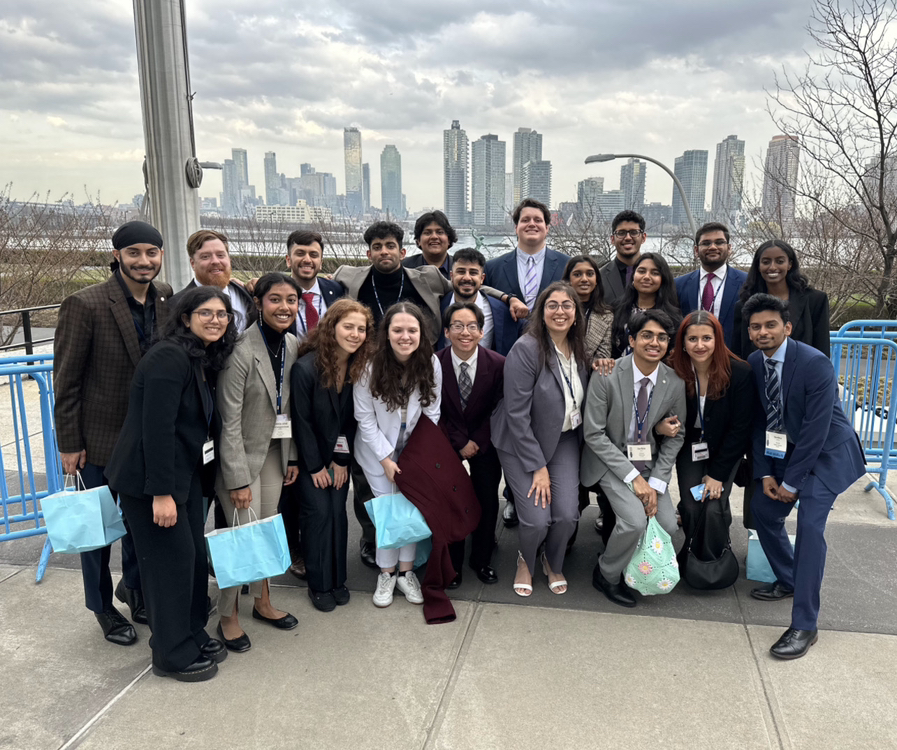Model UN wrapped up their last conference of the year in New York from April 2 to April 6, representing 15 countries and receiving 24 awards.
The New York conference spanned five days, with the UTD team representing Bosnia and Herzegovina–Serbia. This year, members have received seven position paper awards, 11 committee awards, two Outstanding Delegation awards, two Distinguished Delegation, and two Honorable Mentions Delegation awards.
“We’re always super, super proud of them, but especially when we come back from New York, we’re incredibly proud of them all the time because that’s our longest and hardest conference,” Rana Youssef, a literature junior and the vice president of UTD Model UN, said. “The freshmen who had never done it before to pros who have gone multiple times.”
To practice, conference attendees both research and build their writing and speaking skills. Public affairs senior Kaley Niette, the president of UTD Model UN, expressed that other than the objective skills needed for a successful conference, the officers make it a priority to build relationships, network and simply be kind to one another. Students find a sense of belonging and community in the weekly practices and weekend conferences.
“We don’t just want to take people who are just amazing from the get-go,” Youssef said. “We want to give people a chance to grow, not just in the skills that it takes to succeed in conference and at the competition itself, but also to grow as a member on the team. The members have really grown as both team members and individuals. And we see that in the fact that even though we only take about 20 people to a conference, so many more people show up to practice … because they like being there and they like learning.”
Kaley said that many Gen Z students are pressured to chase the “cool stereotype” and the newest trends. The college experience can undoubtedly be an exciting time, but it can also be overwhelming and stressful, especially when students feel disconnected or isolated from their peers. Model UN offers a community of individuals who are all passionate about similar issues and goals, which is empowering and supportive to its members. By working together towards a common goal or a “resolution,” students can form meaningful friendships.
“This is a space where it’s okay if you sound a little silly for a minute as long as you get the practice,” Kaley said. “They just come out of their shells so quickly. It’s so refreshing to see people actually practicing at something and getting better at it. If they make a mistake or if they get nervous, they’re talking to their friends, and they’re working with people that genuinely care about [them.]”
The officers told various stories where students came in as timid freshmen and transformed into strong and outspoken students educated on global issues.
“I want our team to stay strong,” Kaley said. “I want our people to remember the importance of kindness. I tell them all the time, I would so much rather you do the right thing and you prioritize helping somebody else than you bring me an award. I can frame a certificate fine, but the person that you help, the person that you do something kind for, they can’t get that moment back.”





